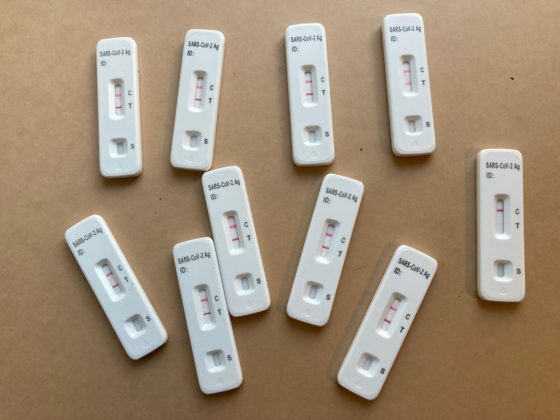Long Covid clinics forced to close to new patients over cash concerns


Two large clinics set up to help people with Long Covid in Amsterdam and Rotterdam are being forced to close their doors to new patients because of money concerns, the Volkskrant reported on Friday.
The clinics, which help people with long-lasting, serious complaints, say the payment they are given by health insurers, based on a 10-minute consultation, is not enough to cover the cost.
Rotterdam lung specialist Merel Hellemons told the paper that there are enough experts available. ‘But if patients hit a brick wall and have seen so many doctors already, they want to go to one place for further research,’ she said.
The clinic operated by Rotterdam’s Erasmus teaching hospital has stopped taking on new patients while just one of the four clinics operated by Amsterdam’s teaching hospital is still open, the VK said. Radboud’s clinic closed last summer.
There are no complete figures about how many people are suffering from Long Covid but support group C-support has some 22,000 members.
Amsterdam UMC specialist Michèle van Vugt told the paper that patients with post Covid symptoms have a wide range of complaints which require a multi-disciplinary approach. ‘A teaching hospital is the place for such a complex illness,’ she said. ‘It does not feel right that there are so few resources.’
Jobs
More than half of people suffering from the long-term effects of coronavirus are expected to be unable to go back to work after two years, state-run job centre UWV said earlier this week.
The organisation received 1,900 applications last year from people with Long Covid for a declaration that would entitle them to long-term sickness benefit (WIA). WIA is available to people who are dismissed after being off work through illness for two years and lose at least 35% of their income.
The UWV says around 17,000 people are on the waiting list to be assessed for long Covid and expects the number to grow this year. So far around 60% have been declared unfit for work.
One-third of applications are from workers in the healthcare sector, who accounted for a high proportion of infections in the first wave of coronavirus in the spring of 2020, when they were exempted from many of the quarantine restrictions so they could keep working on infected wards.
Thank you for donating to DutchNews.nl.
We could not provide the Dutch News service, and keep it free of charge, without the generous support of our readers. Your donations allow us to report on issues you tell us matter, and provide you with a summary of the most important Dutch news each day.
Make a donation